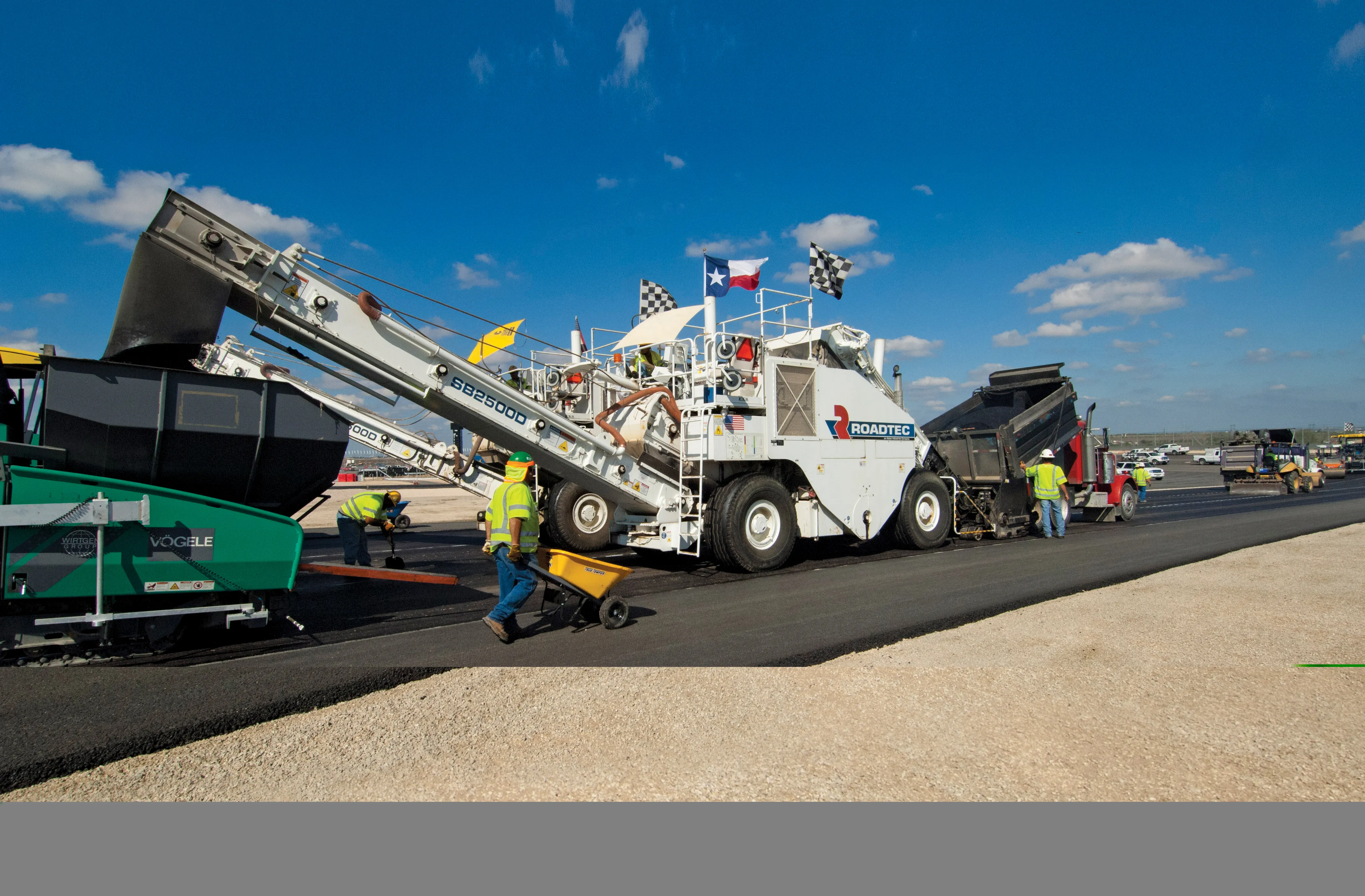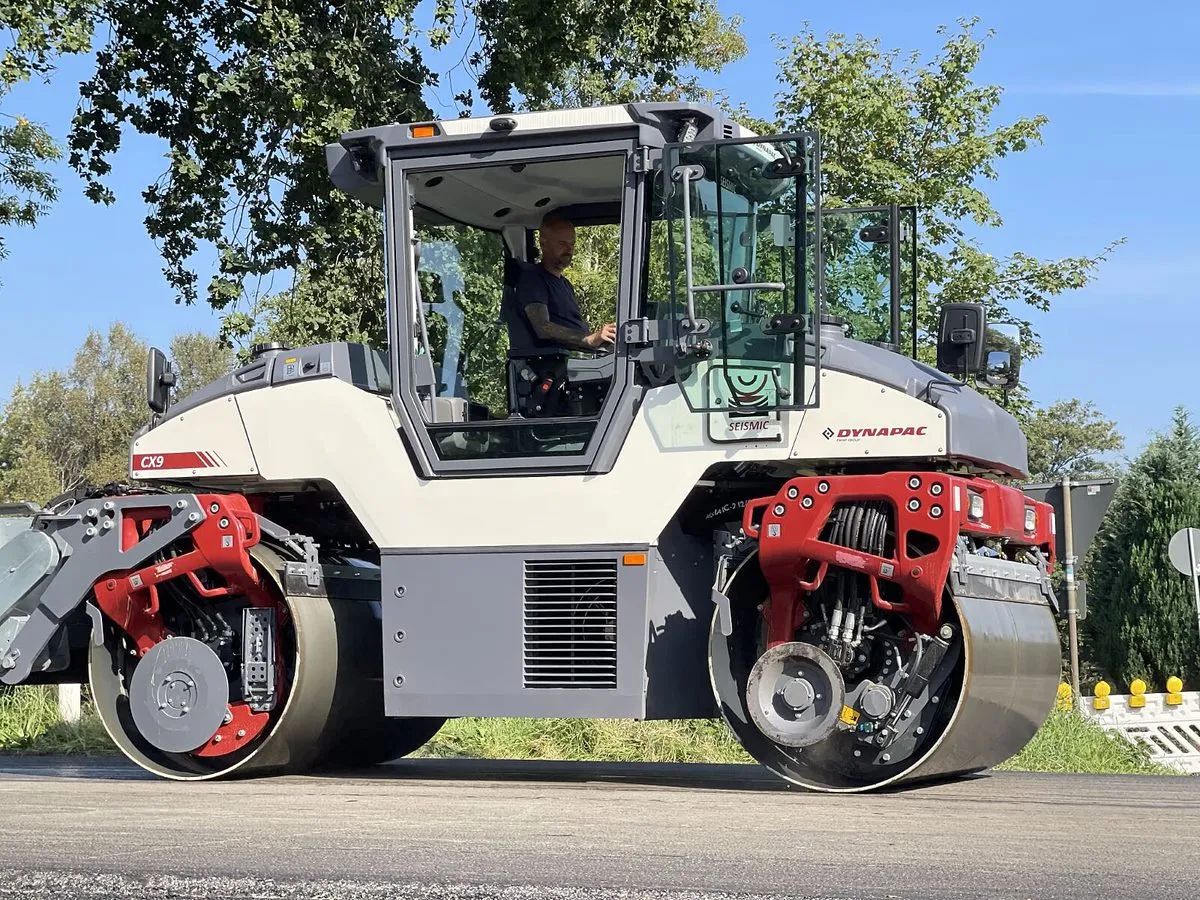This month: rubber comes to the rescue for cash-strapped UK authorities and Italian towns plagued by road noise; Japanese nanotechnology fights monsoon damage in India; and a new research programme promises to help define whether ‘sustainable’ bitumen technologies really live up to their billing - Kristina Smith writes
A new venture in the UK aims to encourage the use of recycled tyres in road pavements. Billian UK is now manufacturing GTR Pellets which combine bitumen, ground tyre rubber (GTR) and miner
March 12, 2014
Read time: 5 mins

This month: rubber comes to the rescue for cash-strapped UK authorities and Italian towns plagued by road noise; Japanese nanotechnology fights monsoon damage in India; and a new research programme promises to help define whether ‘sustainable’ bitumen technologies really live up to their billing - Kristina Smith writes
A new venture in the UK aims to encourage the use of recycled tyres in road pavements. Billian UK is now manufacturing GTR Pellets which combine bitumen, ground tyre rubber (GTR) and mineral filler and can be used without modification to existing asphalt plants.
The patented process was invented in the US by Bill Bailey. Tests at the National Centre for Asphalt Technology (NCAT) between 2009 and 2011 compared mixes made with GTR pellets to those modified using styrene-butadiene-styrene (SBS) polymer and found that the performance was comparable in every way, according to Billian.
Billian UK hopes that the combination of improved durability together with lower embodied carbon and higher recycled content will appeal to the UK market and its failing road network. And – crucially - asphalt modified with GTR Pellets will be cheaper than conventional polymer modified bitumen (PMB).
“Reusing ground tyre rubber from recycled tyres as a bitumen modifier not only lowers the environmental and social impact of asphalt, it also has the potential to significantly reduce asphalt production costs by negating the need for costly PMB and the highly energy-intensive heated tanks used for storing hot liquid PMB,” said Billian UK’s general manager Gareth Evans.
“There is currently a massive demand in the UK for better quality, more durable roads. One in five of our roads is in poor condition, which means they have less than five years of life remaining - currently a £10.5 billion problem.”
Tyre rubber has been used in roads for over 50 years, in varying ways. It can be added to the mix as granules, as you would aggregate, which is known as the ‘dry’ process. This brings limited improvement to a pavement’s performance.
The ‘wet’ process, where the ground rubber is added to bitumen at around 200°C and mixed intensively for around an hour, creates a new modified binder with much more significant improvements in performance. However, the drawback is that plant needs modifying and the higher temperatures have negative impacts on carbon and other harmful emissions.
GTR pellets are much more straight-forward to use. They are transported and stored at ambient temperature and require no modification to the plants. The proportion of rubber additive in the asphalt can be varied by adding more or less pellets, depending on the level of modification required.
It appears that there is considerable interest for this new process from the UK: a spokesman for Billian UK confirmed that mixes using the GTR Pellets, which are manufactured in Sheffield in the North of England using specially selected tyre rubber, were being trialled by several local authorities. “There are numerous pilots going ahead,” he said. “It’s going down on roads now.”
252 Iterchimica is working to develop a sound-suppressing pavement product which will work at warm mix temperatures. This follows on from its development of Itersilens which combines recycled crumb rubber, additives and a specially formulated grade of aggregate to reduce noise emissions by between 6-8dB.
The crumb rubber and additives modify the bituminous binder, improving its physical-mechanical properties. Itersilens, which was launched in 2009 and has been used on six provincial roads in northern Italy, works by absorbing vibrations from traffic and hence reducing noise.
According to Iterchimica, its benefits also include greater adhesion between aggregate and binder, greater adhesion between road and tyre and a greater resistance to rutting. Durability is an important factor, as noise levels tend to increase as the pavement surface degrades. The noise-reducing impact of Itersilens has been demonstrated on the provincial road between Spinete and Sale in the Province of Alessandria in Italy. Residents had been complaining about noise levels and tests showed that night-time emissions exceeded that allowed by Italian legislation.
The solution was to resurface a 700m-long section, 7.5m wide with Itersilens, which took place in July 2012. Measurements taken later that year showed that Itersilens had improved the situation, despite the fact that rainfall during the measurement period increased the intensity of the noise produced.
The weekly mean values had fallen from 68.5dB during the day and 63dB at night to 63.5dB in the day and 56.5dB at night. The regulatory limits are 70dB daytime and 60dB night-time.
713 International Road Federation at its Global Road Achievement Awards, held in Riyadh, Saudi Arabia in November 2013. The awards, which cover eight categories, are designed to showcase innovative solutions for road construction from around the world.
The Hyderbad- Karimnagar- Ramagundam toll road in India won the Research category of the awards, using7552 Zydex Industries’ Zycosoil anti-stripping agent for the DBM (surfacing) and binder course mixes. Zycosoil chemically reacts with the surface of aggregates to make them water repellent, leading to a stronger adhesion between asphalt binder and aggregate.
Highway contractors3152 Gayatri Projects and Prasad Project Works proposed to use Zycosoil on the 150km length of road, procured under a DBFO package by client 3577 National Highway Authority of India, in order to minimise the risk of the road failing. The combination of heavy traffic and the monsoon season can lead to failure of road surfaces, particularly due to water ingress. The road was laid in July 2011, and photos taken after the monsoon season show that it is still in good condition.
As well as enhancing resistance to rutting and moisture, Zydex also reports that Zycosoil improves the tensile strength of an asphalt mix, increases compaction by between 1-1.5% and reduces oxidation of the asphalt binder, enhancing pavement life. The additive is odourless, which is good for the working environment, non-corrosive and, Zydex says, leads to cleaner equipment.
Zydex also produces other products which benefit from nanotechnology: Zycotherm WMA for warm mix asphalt; Nanotac for tack coats; Terrasil which can be used for prime coats and for sub-grade waterproofing.
A new venture in the UK aims to encourage the use of recycled tyres in road pavements. Billian UK is now manufacturing GTR Pellets which combine bitumen, ground tyre rubber (GTR) and mineral filler and can be used without modification to existing asphalt plants.
The patented process was invented in the US by Bill Bailey. Tests at the National Centre for Asphalt Technology (NCAT) between 2009 and 2011 compared mixes made with GTR pellets to those modified using styrene-butadiene-styrene (SBS) polymer and found that the performance was comparable in every way, according to Billian.
Billian UK hopes that the combination of improved durability together with lower embodied carbon and higher recycled content will appeal to the UK market and its failing road network. And – crucially - asphalt modified with GTR Pellets will be cheaper than conventional polymer modified bitumen (PMB).
“Reusing ground tyre rubber from recycled tyres as a bitumen modifier not only lowers the environmental and social impact of asphalt, it also has the potential to significantly reduce asphalt production costs by negating the need for costly PMB and the highly energy-intensive heated tanks used for storing hot liquid PMB,” said Billian UK’s general manager Gareth Evans.
“There is currently a massive demand in the UK for better quality, more durable roads. One in five of our roads is in poor condition, which means they have less than five years of life remaining - currently a £10.5 billion problem.”
Tyre rubber has been used in roads for over 50 years, in varying ways. It can be added to the mix as granules, as you would aggregate, which is known as the ‘dry’ process. This brings limited improvement to a pavement’s performance.
The ‘wet’ process, where the ground rubber is added to bitumen at around 200°C and mixed intensively for around an hour, creates a new modified binder with much more significant improvements in performance. However, the drawback is that plant needs modifying and the higher temperatures have negative impacts on carbon and other harmful emissions.
GTR pellets are much more straight-forward to use. They are transported and stored at ambient temperature and require no modification to the plants. The proportion of rubber additive in the asphalt can be varied by adding more or less pellets, depending on the level of modification required.
It appears that there is considerable interest for this new process from the UK: a spokesman for Billian UK confirmed that mixes using the GTR Pellets, which are manufactured in Sheffield in the North of England using specially selected tyre rubber, were being trialled by several local authorities. “There are numerous pilots going ahead,” he said. “It’s going down on roads now.”
Iterchimica
Italian asphalt additive specialistThe crumb rubber and additives modify the bituminous binder, improving its physical-mechanical properties. Itersilens, which was launched in 2009 and has been used on six provincial roads in northern Italy, works by absorbing vibrations from traffic and hence reducing noise.
According to Iterchimica, its benefits also include greater adhesion between aggregate and binder, greater adhesion between road and tyre and a greater resistance to rutting. Durability is an important factor, as noise levels tend to increase as the pavement surface degrades. The noise-reducing impact of Itersilens has been demonstrated on the provincial road between Spinete and Sale in the Province of Alessandria in Italy. Residents had been complaining about noise levels and tests showed that night-time emissions exceeded that allowed by Italian legislation.
The solution was to resurface a 700m-long section, 7.5m wide with Itersilens, which took place in July 2012. Measurements taken later that year showed that Itersilens had improved the situation, despite the fact that rainfall during the measurement period increased the intensity of the noise produced.
The weekly mean values had fallen from 68.5dB during the day and 63dB at night to 63.5dB in the day and 56.5dB at night. The regulatory limits are 70dB daytime and 60dB night-time.
Zydex Industries
The use of nanotechnology in an anti-stripping agent was recognised by theThe Hyderbad- Karimnagar- Ramagundam toll road in India won the Research category of the awards, using
Highway contractors
As well as enhancing resistance to rutting and moisture, Zydex also reports that Zycosoil improves the tensile strength of an asphalt mix, increases compaction by between 1-1.5% and reduces oxidation of the asphalt binder, enhancing pavement life. The additive is odourless, which is good for the working environment, non-corrosive and, Zydex says, leads to cleaner equipment.
Zydex also produces other products which benefit from nanotechnology: Zycotherm WMA for warm mix asphalt; Nanotac for tack coats; Terrasil which can be used for prime coats and for sub-grade waterproofing.









